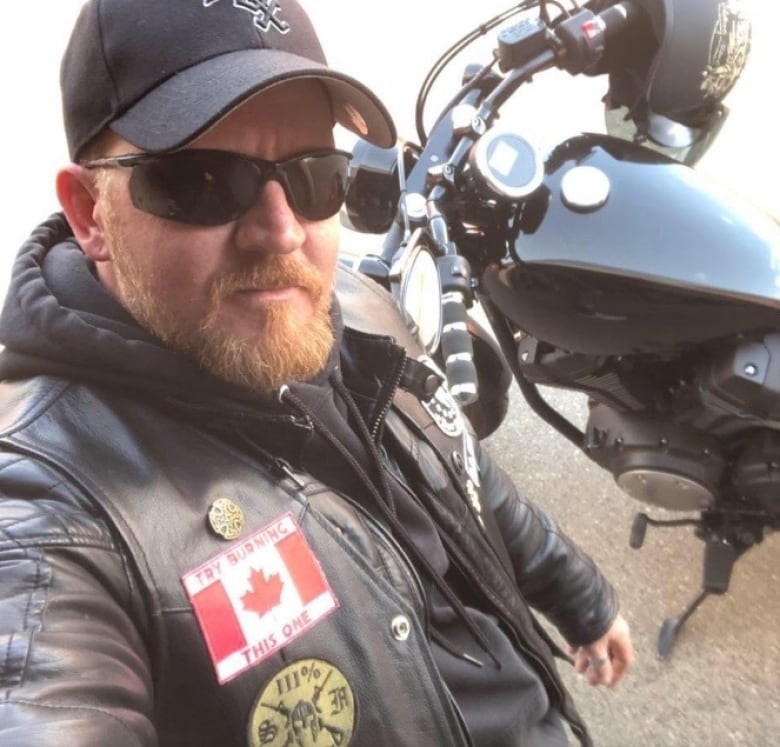Rights group urges defence minister to turn cases of racism in the ranks over to police
Simon Wiesenthal Center calls for an end to a 'culture of tolerance for neo-Nazis and neo-Nazi activities'

One of the country's leading human rights groups is urging Defence Minister Harjit Sajjan to turn all suspected acts of racism, white supremacy and hateful conduct within the Canadian Armed Forces over to a specialized task force of military police officers or the RCMP for investigation.
The Friends of Simon Wiesenthal Center laid down a series of markers for reform during a teleconference meeting last week with Sajjan. Jaime Kirzner-Roberts, the centre's director of its campaign against anti-Semitism, said the military needs to take decisive, independent action to stop what appears to be a growing problem of intolerance in some quarters of the military.
The meeting — which included Rabbi Meyer May, the executive director of the Simon Wiesenthal Center — took place the day after CBC News published an investigative account of how a Canadian Ranger was allowed to keep serving even though he was openly active in two far-right organizations.
"Change needs to happen. It needs to be decisive," Kirzner-Roberts told CBC News. "We need to end this culture of tolerance for neo-Nazis and neo-Nazi activities within our Armed Forces and it needs to be done now."
The meeting with Sajjan was called originally to discuss the Royal Canadian Navy's decision to reinstate a Calgary-based reservist sailor with neo-Nazi ties. Kirzner-Roberts said the publication of the CBC News story about Erik Myggland fuelled a broader, more urgent discussion about how the military responds to suspected cases of extremism.
"We're interested in seeing action," she said. "We're interested in seeing our leaders taking decisive action."
The centre put forward three proposals that take a step beyond the Canadian military's new policy framework, released this summer. That framework is intended to address hateful conduct and the growing number of reports of military members affiliated with extremist groups.
There should be some kind of body within the military that proactively investigates potential cases of white supremacist or extremist activity, Kirzner-Roberts said.
A matter of discipline, or a job for the police?
The centre also wants to see the military adopt a policy of immediately sending all cases of alleged white supremacist activity to military police or the RCMP for investigation.
When instances of extremist activity have surfaced in the Canadian Forces in the past, the reflex response of the Department of National Defence has been to handle such matters under military administrative and disciplinary policy.
By treating it as a human resources issue, Kirzner-Roberts said, "they are effectively shielding members from prosecution for criminal activity."
Instead, she said, the chain of command should be turning such cases over to law enforcement at the outset.
If military police or the RCMP do not believe a crime has taken place, she said, the case can be handled as a matter of discipline — but anyone found guilty of hateful conduct should be ejected from the military automatically.
In his response to CBC's investigation of far-right activity within the Rangers, Sajjan said he was planning to take strong action but did not define what that meant.
In a statement, Sajjan confirmed his meeting with the Friends of the Simon Wiesenthal Center and said he assured them he was working to put "the appropriate measures in place so we are able to respond quickly to hateful conduct, no matter where it might be found."

That message is undermined somewhat by the fact that Ranger at the centre of the CBC News investigation still has not been released from the military.
Erik Myggland never hid his association with the Three Percenter movement, a far-right militia and paramilitary group, and the Soldiers of Odin, an anti-immigrant and white supremacist group founded in Kemi, Finland, in October 2015. It was all over his social media.
Myggland was interviewed by military counterintelligence but was allowed to continue serving, even though he posted anti-government rants — one of which referred to Prime Minister Justin Trudeau as a "treasonous bastard" two years ago.
Sajjan said people with extremist and anti-government views don't belong in the military.

